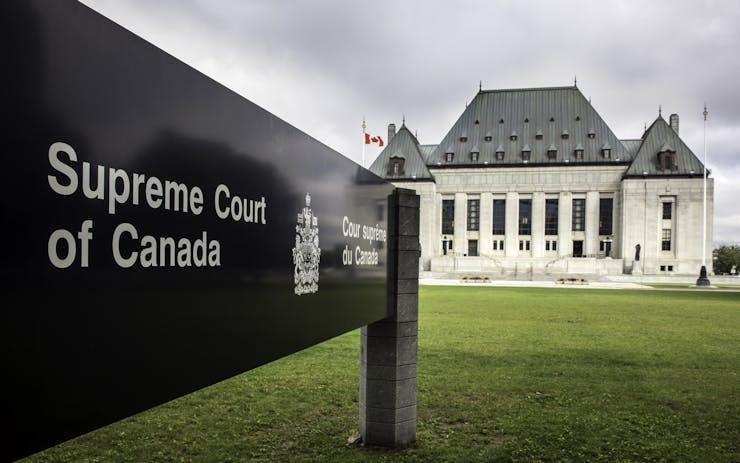The Supreme Court of Canada is about to consider the impact of the country’s legalization plan on the country’s interprovincial trade. Canada’s top court has accepted an application from cannabis-related companies to intervene in an upcoming case that some are saying could have wide implications for interprovincial trade in the country.
In 2016, Gerard Comeau of Tacadie, New Brunswick was fined almost $300 for bringing more than 14 cases of beer into the province. (New Brunswick is home to laws that restrict the amount of alcohol that can be brought across its border.) The charge was later overturned at the New Brunswick Court of Appeal, and a subsequent appeal by the Crown means the country’s top court will wade into the boozy feud.
“It is Cannabis Culture’s position that the LCBO’s control over all recreational cannabis distribution and sale is overly restrictive and amounts…to a form of interprovincial trade barrier.”
Now, Cannabis Culture, the marijuana lifestyle brand that once franchised its name to dispensary locations across Canada, has hired prominent cannabis lawyer Kirk Tousaw to apply as an intervenor in the Comeau case. Their application is also being submitted on behalf of 28 other corporations and non-profits, which collectively operate 100 dispensaries across the country.
In their application, Tousaw says that Cannabis Culture believes the upcoming ruling is “of pressing and substantial importance” because provinces “could create barriers to the free trade of cannabis products from Province to Province … and could constitute an infringement of s. 121 of the Constitution Act of 1867.”
Tousaw is hoping to use the case to dismantle the Ontario government’s planned cannabis monopoly – or at least get the conversation going on it. “It is Cannabis Culture’s position that the [Liquor Control Board of Ontario]’s control over all recreational cannabis distribution and sale is overly restrictive and amounts … to a form of interprovincial trade barrier.” He submits that any province seeking to “exert exclusive control over the distribution and sale of cannabis and cannabis derivative products through a Provincial entity” is in effect creating such an unconstitutional trade barrier. The application asks the Supreme Court to confirm the decision of the New Brunswick Court of Appeal, which rejected the charge against Comeau.

(AP Photo/Jae C. Hong)
Tousaw is a bold cannabis litigator famous for defending the Smith case, which brought arguments over edibles and concentrates to the Supreme Court .
In that case, a man named Owen Smith was arrested for producing cookies and edibles for patients of a dispensary. In his defense, Tousaw strove for the moon, asking the Court to rule entire sections of the country’s drug rules be ruled unconstitutional and to find that cannabis should instead be regulated by the country’s Natural Health Products regime.
Ultimately, Tousaw didn’t get everything he wanted, but the Supreme Court did rule in his client’s favour, finding that some provisions of Canada’s drug laws were unconstitutional to the extent that they prohibit individuals from procuring and consuming concentrated forms of cannabis as they need it.
Tousaw’s bringing similar determination to the Comeau case. It’s unclear if the Supreme Court will accept Cannabis Culture’s intervenor application, and even if they do, the Court may not seriously consider their arguments. It’s unlikely that the Supreme Court will even mention the word cannabis in their ruling, similar to the lower court decisions in this case.
There are many parallels between this case and Canada’s proposed legalization plan, and it is likely that claims regarding interprovincial trade of cannabis will continue to be heard by the country’s courts. The 30-gram public possession limit contained in the Cannabis Act could be a significant barrier to interprovincial trade, since you can only cross provincial borders, well, in public.
Tousaw and Cannabis Culture don’t mention the 30-gram limit in their application, but ostensibly if the court confirms the Court of Appeal’s dismissal of the case, a challenge to the public-possession limit could be forthcoming. Stay tuned.





